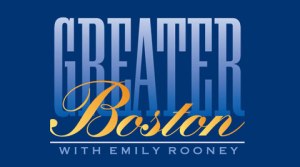
A week ago today, The Washington Post reported (free link) that Donald Trump may have helped fuel his 2016 presidential campaign with an illegal, last-minute infusion of $10 million from the Egyptian government.
The FBI investigated the money trail but was called off the case by Attorney General Bill Barr — the same Bill Barr whose lies about the Mueller investigation into the Trump campaign’s collusion with Russia helped warp public perceptions.
So far, there has been very little follow-up — not by the Post and, most significant, not by The New York Times. I have to assume that the Post, at least, is still digging. But this story, if all the dots can be connected, amounts to a massive scandal that in saner times would drive a candidate out of the race.
Of course the media are to blame for not pushing this story. But so is the Democratic Party, which is guilty of malpractice for not opening an investigation in the Senate immediately. What makes a story stick is repetition — and without prominent Democrats coming out every day and giving journalists something to report on, it quickly withers away.
Today is not just the one-week anniversary of the Post’s Egypt story. It’s also the 50th anniversary of Richard Nixon’s resignation as president, a consequence of the Watergate scandal, which was pushed relentlessly by the press (especially the Post), elected officials and the courts.
And here’s a parallel that is worth pondering. Four years ago, Boston lawyer and journalist James Barron wrote that the Watergate break-in may well have been an attempt to steal documents from Democratic Party headquarters showing that Nixon had taken $549,000 from the Greek government in order to help finance his 1968 campaign.
Barron tells the story in his book “The Greek Connection: The Life of Elias Demetracopoulos and the Untold Story of Watergate.” Demetracopoulos, a liberal Greek journalist, tried to warn people in the U.S. that the right-wing junta then running his country had paid off Nixon, but his efforts came to naught.
In shades of today’s somnolent Democrats, Barron writes that party chair Larry O’Brien didn’t tell President Lyndon Johnson what he knew and turned down frantic requests from Vice President Hubert Humphrey’s campaign to use it in political ads. The Boston Globe tried to get at the story, but then-Globe reporter Christopher Lydon was unable to pierce the veil. In an interview for GBH News, Barron told me:
Watergate is a metaphor for abuse of power during the Nixon years. The scandal didn’t begin with the planning for the June 1972 break-in. Its roots are in the illegal financing of the 1968 election, the potential disclosure of which caused, in the words of the historian Stanley Kutler, the “most anxiety” in the Nixon administration “for the longest period of time.”…
There is strong circumstantial evidence that at least part of what the burglars were directed to find was whatever derogatory information the Democrats had on Nixon, especially financial documents related to foreign contributions.
These days, of course, Trump would just go running to Sean Hannity, and what should be a campaign-ending scandal, if proved, would simply degenerate into another muddle over the mainstream media and “fake news.” But that doesn’t mean journalists and Democrats shouldn’t be pounding away at this every day.


 Emily Rooney is taping the intro to a segment of WGBH-TV’s new local public-affairs show, Greater Boston. Or trying to, anyway. It’s been a long day. Her feet are killing her. And her first few attempts at hyping an interview with Charles Murray, the controversial academic who’s currently promoting his new book on libertarianism, haven’t gone particularly well.
Emily Rooney is taping the intro to a segment of WGBH-TV’s new local public-affairs show, Greater Boston. Or trying to, anyway. It’s been a long day. Her feet are killing her. And her first few attempts at hyping an interview with Charles Murray, the controversial academic who’s currently promoting his new book on libertarianism, haven’t gone particularly well.
